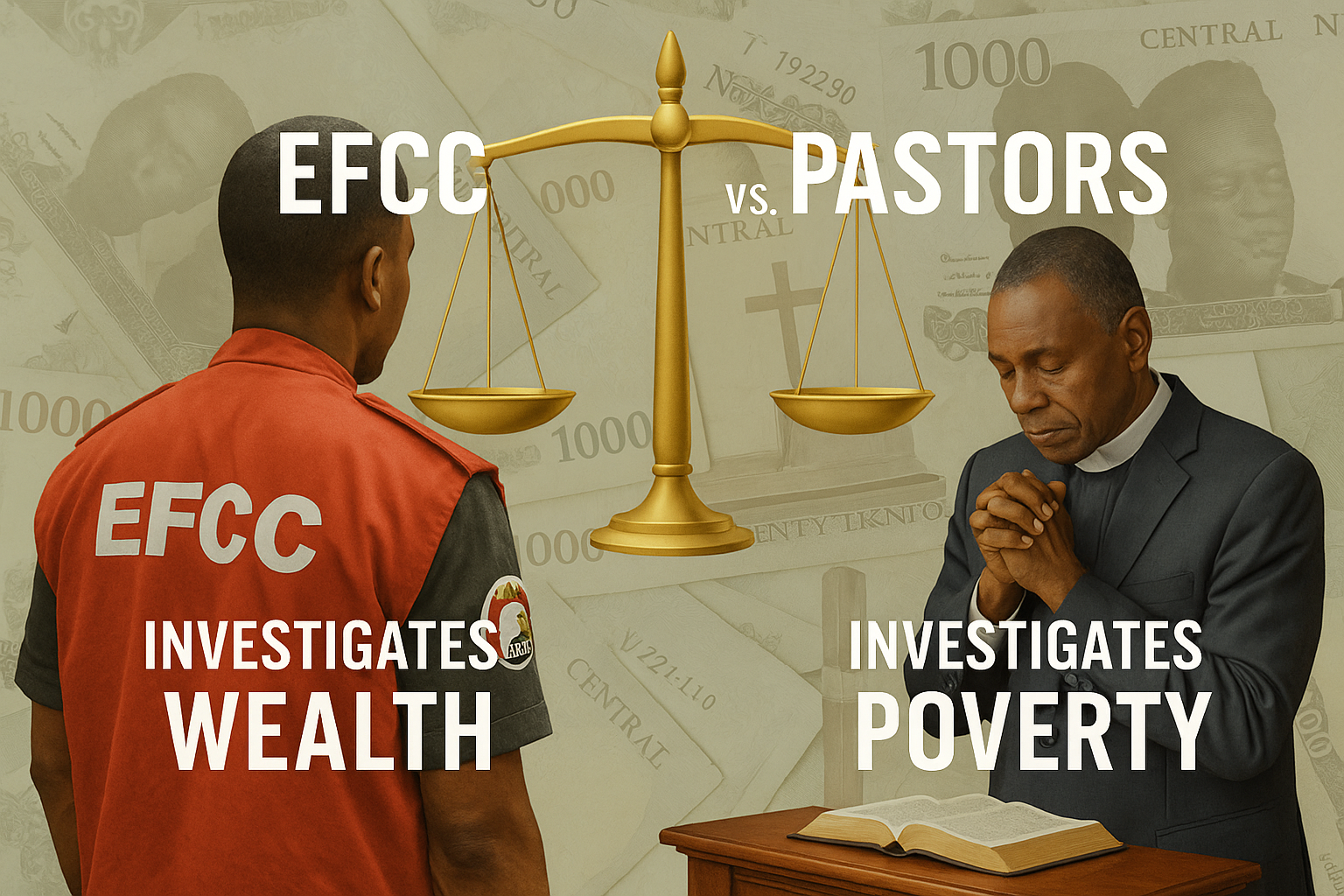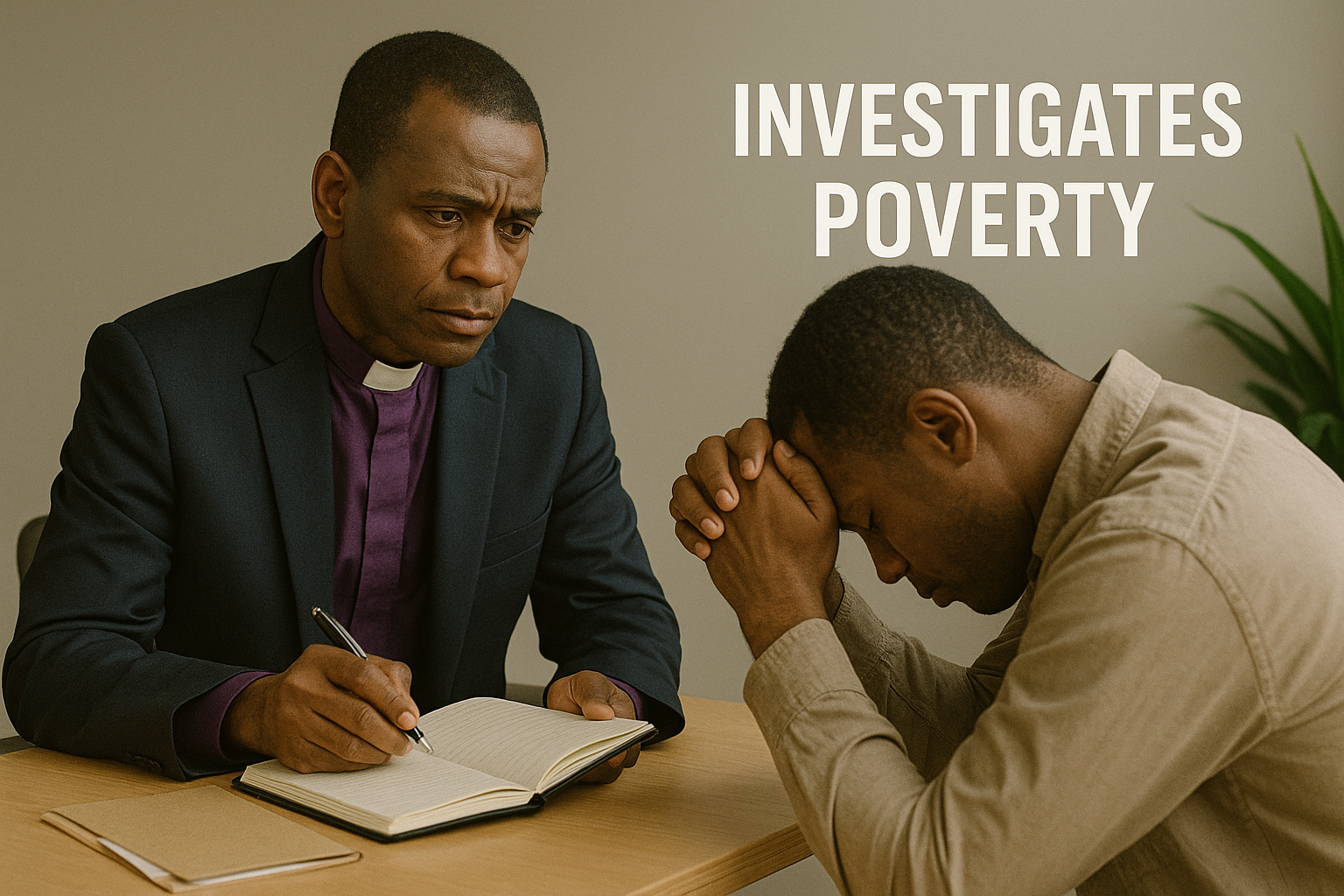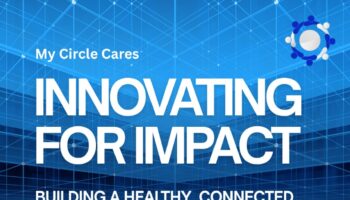EFCC Investigates Wealth, Pastors Investigate Poverty—Nigeria’s Money Paradox
EFCC vs. Pastors. In Nigeria, wealth and poverty aren’t just economic conditions —they’re spiritual, cultural, and political discussions. Recently, I came across a thought that sparked deep curiosity:
“The EFCC investigates the source of people’s wealth, and pastors investigate the source of people’s poverty.”
Let that sink in. It’s both hilarious and hauntingly accurate. This blog post dives deep into this reality, unwrapping the layers of irony, societal dysfunction, and human behavior that surround money — whether you have too much or too little of it.
The EFCC and the Curious Case of Wealth
The Economic and Financial Crimes Commission (EFCC) is Nigeria’s watchdog for financial crimes. From politicians to Instagram celebrities, the EFCC has its lens focused on individuals who rise quickly through the ranks of wealth.
Why the suspicion?
In a country riddled with corruption, sudden wealth raises eyebrows. Who wouldn’t question a 25-year-old driving a ₦120 million car? The EFCC’s job is simple:
If you suddenly start balling, we need receipts.
While this approach has its merits, it also creates a culture of fear around success. It sends a subtle message: “If you make it big, you better have a story — or we’ll write one for you.”
Pastors and the Theology of Lack
Flip the coin and walk into a typical Nigerian church. You’ll hear pastors asking probing questions like:
-
“What sin is blocking your breakthrough?”
-
“Who is behind your financial stagnation?”
-
“Have you paid your tithe?”
Here, poverty isn’t just economic; it’s spiritual. The search for the source of poverty leads to ancestral curses, marine spirits, and village witches. Prayer sessions are organized. Fasting is prescribed. Seeds must be sown. Deliverance becomes a monthly affair.
The unspoken idea:
If you’re broke, it’s not just about the economy — there must be a spiritual enemy at play.
Double Standards in the Investigation of Life Outcomes
It’s fascinating how the same society looks at success and struggle with such contrasting attitudes:
-
Wealth? Must be fraud.
-
Poverty? Must be spiritual.
This shows our relationship with money is warped. We neither trust those who have it, nor do we offer logical explanations for those who lack it. Both ends of the financial spectrum are subject to investigations — but from wildly different institutions.
Culture, Control, and the Psychology Behind It
This paradox isn’t just funny; it’s deeply revealing. Here’s why this trend exists:
1. Control Through Suspicion
The EFCC instills fear to maintain control. It’s a way to discourage financial recklessness or criminal activity — but it can also discourage genuine entrepreneurship.
2. Control Through Spiritual Authority
Pastors leverage spiritual explanations to maintain relevance. If poverty is spiritual, the solution must be divine — and they are the gatekeepers to that divine intervention.
3. Distrust in Systems
Both cases highlight a deep distrust in institutional systems. Nigerians don’t believe the system creates wealth or reduces poverty fairly. So we look for unseen causes.
Intriguing Irony: Who Investigates the Middle Class?
Interestingly, no one investigates the middle-class. Why? Because they’re not suspiciously successful, nor are they spiritually stagnant. They’re surviving — and in Nigeria, survival doesn’t get headlines.
Final Thoughts: A Society Obsessed with Outcomes
This comparison is more than satire — it’s a mirror. Whether it’s EFCC raiding your mansion or a pastor laying hands on your bank account, everyone wants to know why your life turned out the way it did.
And maybe, just maybe, we should stop searching for mysterious sources and start looking at:
-
Education
-
Job creation
-
Policy reform
-
Mental health
-
Entrepreneurship training
Let’s not be so caught up in suspicion that we forget to build systems that make wealth achievable and poverty escapable — without needing anointing oil or anti-graft squads.
What do you think? Have you ever been “investigated” — either by the EFCC or your pastor? Drop your thoughts in the comments and share this post with someone who needs a good laugh and a moment of reflection.









